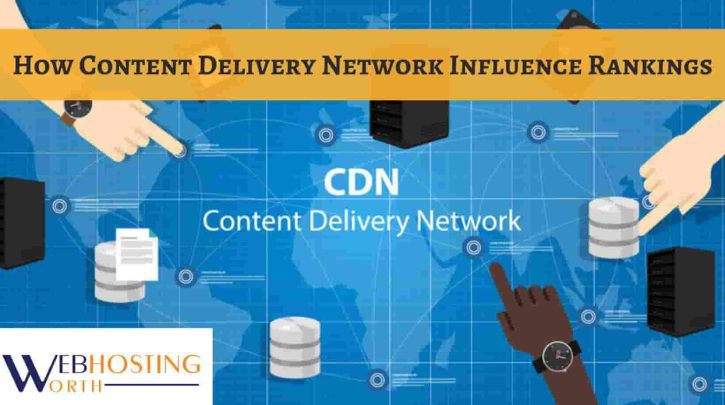In today’s fast-paced digital landscape, speed and user experience are paramount. Website visitors expect instant access to content, and search engines prioritize delivering the best user experience. This is where Content Delivery Network (CDN) come into play. In this blog post, we’ll explore the intricate relationship between CDN and SEO, and how these networks can significantly impact your website’s search engine rankings.
Understanding Content Delivery Network (CDN)
Before we delve into the SEO benefits of CDN, let’s ensure we’re on the same page regarding what CDN are and how they work.
What is a CDN?
A Content Delivery Network (CDN) is a network of geographically distributed servers designed to accelerate the delivery of web content. CDN work by caching and storing copies of your website’s files, such as images, stylesheets, and scripts, on servers strategically located around the world.
When a user requests access to your website, the CDN automatically selects the server closest to the user’s location to deliver the content. This reduces the physical distance data must travel, resulting in faster load times and a smoother user experience.
The Need for Speed: SEO and User Experience
Google, the leading search engine, has made website speed an essential factor in its ranking algorithm. The logic is simple: a faster website provides a better user experience, which aligns with Google’s goal of delivering high-quality search results.
Here’s why speed matters in the context of SEO:
1. Lower Bounce Rates:
Users are more likely to stay on a website that loads quickly. A slow-loading site increases bounce rates, sending negative signals to search engines.
2. Improved User Engagement:
A fast website enhances user engagement. Visitors are more likely to explore more pages, spend more time on your site, and interact with your content.
3. Mobile Friendliness:
With the proliferation of mobile devices, Google has adopted mobile-first indexing. This means that a fast mobile experience is crucial for SEO.
4. Crawling and Indexing:
Faster websites are easier for search engine bots to crawl and index. This ensures that your content is discovered and ranked more efficiently.
How CDN Enhance SEO Rankings
Now that we’ve established the importance of speed in SEO, let’s explore how CDN contribute to improved rankings:
1. Speed Optimization:
Content Delivery Network (CDN) are designed for speed. By serving cached content from servers close to the user, CDN significantly reduce load times. This speed boost positively influences your website’s bounce rate and user engagement, indirectly contributing to better SEO rankings.
2. Global Reach:
CDN have servers distributed worldwide. This global presence ensures that your website loads quickly for users, regardless of their geographical location. Improved global accessibility can positively impact your search engine rankings.
3. Enhanced Mobile Performance:
As mentioned earlier, mobile-friendliness is a crucial SEO factor. CDN optimize content delivery for mobile devices, ensuring fast loading times and a seamless mobile experience.
4. Reducing Downtime:
Many CDN offer redundancy and failover mechanisms. This means that even if your main server experiences downtime, the CDN can still serve cached content, reducing the impact on your website’s availability and SEO rankings.
5. SSL Encryption:
Some CDN offer SSL certificates as part of their services. SSL encryption not only enhances security but also aligns with Google’s preference for secure websites, which can positively influence your rankings.
6. Handling Traffic Surges:
CDN are designed to handle high levels of traffic. If your website experiences a sudden surge in visitors (e.g., due to viral content), the CDN can help maintain site speed and availability, preventing potential ranking drops during peak periods.
7. Reduced Server Load:
Offloading the delivery of static content to CDN reduces the load on your hosting server. This can improve server response times, indirectly benefiting SEO.
Choosing the Right CDN for SEO Success
To reap the SEO benefits of CDN, it’s crucial to choose the right CDN provider and implement it effectively. Here are some tips:
1. Evaluate CDN Performance:
Compare CDN providers based on their performance, including server locations, caching capabilities, and speed optimization features.
2. Consider Mobile Optimization:
Ensure that the CDN you choose offers mobile optimization features to cater to the growing mobile audience.
3. SSL Support:
Check if the CDN provides SSL support to enhance security and SEO rankings.
4. Scalability:
Select a CDN that can scale with your website’s growth to accommodate increasing traffic.
5. Integration:
Integrate the CDN seamlessly with your existing infrastructure to avoid technical issues that may affect SEO.
In the ever-evolving world of SEO, website speed and user experience continue to be critical factors in determining rankings. Content Delivery Network (CDN) have emerged as invaluable tools for optimizing speed and improving user experience, both of which have a direct impact on SEO.
By choosing the right CDN provider and effectively implementing CDN services, you can enhance your website’s performance, reduce bounce rates, and ultimately boost your search engine rankings. In today’s competitive digital landscape, CDN are not just a luxury but a necessity for SEO success.



